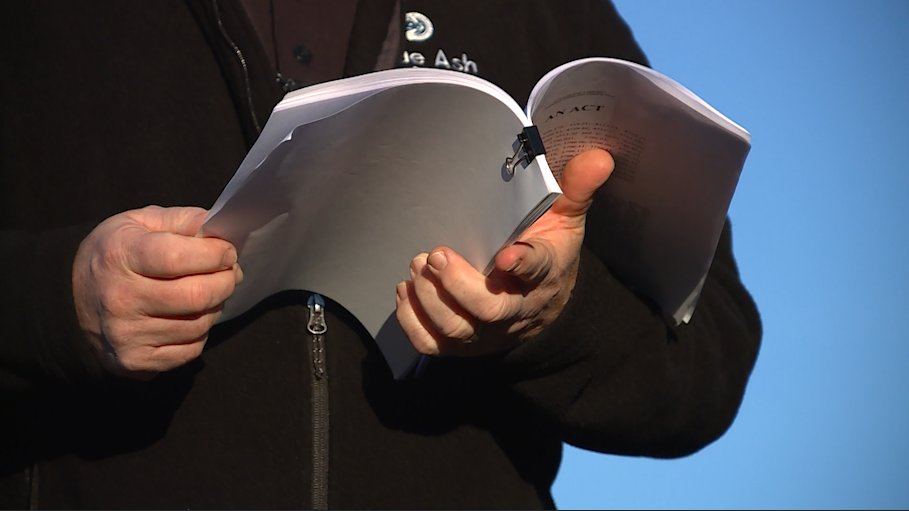Medical marijuana is expected to be available for the first time in Ohio this fall. Here’s what you need to know from the Ohio Medical Marijuana Control Program:
When can I buy medical marijuana?
Ohio law requires all retailers, growing operations, testing labs and other medical marijuana businesses to be fully operational by Sept. 8.
Some worry Ohio will need more time to review the extensive list of groups that applied for marijuana business licenses, but officials say they are meeting deadlines.
How much will it cost?
The retail price of medical marijuana can vary based on quality, wholesale costs, competition and the rate at which it’s taxed in different states.
Here’s a price breakdown for each of the major forms of weed from MarijuanaDoctors.com:
Buds: The price of marijuana buds will vary based on the quality and location of the purchase. Different locations have different price ranges. However, on average, a gram of weed will be no more than $20 and no less than $5. This means that an ounce would cost $200 to $400 on average.
Edibles: Edible marijuana meds are meant for those patients who prefer not to smoke. Edibles are no longer restricted to brownies and cookies. Ice cream, pizzas, and burritos can also be made with medical marijuana-laced ingredients. Prices for edibles are usually based on dosages. Expect to pay about $3 to $5 per dose for these items.
Tinctures – Tinctures are concentrated liquid marijuana. They’re usually sold in one-ounce bottles that are capped with a dropper. They can be used in cooking and are meant for patients who don’t like smoking. You can also mix tinctures with alcoholic beverages. A bottle goes for $20 to $40 depending on concentration.
Will my insurance pay for medical marijuana?
It depends.
Medicaid and Medicare, public health plans for the poor and elderly, still refuse to cover the cost of medical marijuana even if it’s recommended by a doctor because marijuana is still illegal by federal standards.
Have any medical marijuana businesses been started in Ohio now?
Yes. Ohio’s first cultivation facility broke ground in Yellow Springs in December, and will be operated by Chicago-based Cresco Labs LLC.
Cresco was on of 12 business awarded provisional “level I” cultivation licenses by the Ohio Department of Commerce for growers with up to 25,000 square feet of growing space. The commerce department also awarded 12 “level II” cultivation licenses for growers with up to 3,000 square feet.
More growers can be added later if there is a need for more sites.
Where will I be able to buy medical marijuana?
Medical marijuana will be available from dispensaries licensed by the Board of Pharmacy, which is reviewing 376 applications from across the state.
The pharmacy board will ultimately grant 60 licenses for retail dispensaries, including three in Hamilton County.
The dispensaries will be prohibited from locating within 500 feet of a school, church, public library, public playground, public park or community addiction services.
Are there quality controls in place for medical marijuana?
Yes. Ohio’s medical marijuana law requires all marijuana to be tested for quality and potency by an independent lab.
Marijuana cultivator, processor and dispensary owners cannot be involved in a testing lab operation.
How can medical marijuana be consumed?
The law prohibits smoking marijuana, but it can be inhaled through a vaporizer machine that heats the drug up and releases a steam containing THC, the psychoactive element in marijuana.
Medical marijuana can also be consumed in the form of oils, tinctures, edibles and patches.
How much medical marijuana will I be allowed to possess at one time?
A non-terminal registered patient or caregiver can buy the following amounts of medical marijuana every 90 days:
* Up to 8 ounces of tier I medical cannabis. (Tier 1 cannabis must test at or below 23 percent THC)
* Up to 5.3 ounces of tier II medical cannabis. (Tier 2 cannabis must test above 23 percent THC but not more than 35 percent THC)
* Patches, lotions, creams, and other topical forms of medical cannabis totaling no more than 26.55 grams of THC.
* Up to 9.9 grams of THC from cannabis oil, tincture, capsules, and other edible forms.
* And, up to 53.1 grams of THC in oil for vaporization.
Can I use pot for recreation?
Keep dreaming. Still illegal.
Can I grow medical marijuana for personal use?
Nope.
What medical conditions qualify for medical marijuana in Ohio?
Under Ohio law, the following are qualifying medical conditions: AIDS, amyotrophic lateral sclerosis, Alzheimer’s disease, cancer, chronic traumatic encephalopathy, Crohn’s disease, epilepsy or another seizure disorder, fibromyalgia, glaucoma, hepatitis C, inflammatory bowel disease, multiple sclerosis, pain that is either chronic and severe or intractable, Parkinson’s disease, positive status for HIV, post-traumatic stress disorder, sickle cell anemia, spinal cord disease or injury, Tourette’s syndrome, traumatic brain injury, and ulcerative colitis.
Do I need a prescription from a doctor to receive medical marijuana?
Yes. The bill prohibits a physician from personally furnishing or otherwise dispensing medical marijuana.
In addition, all medical marijuana patients and their caregivers are required to register with the State Board of Pharmacy.
Registrations will be valid for one year from the date of issuance, except in the case of those diagnosed as terminally ill, whose registrations will expire in six months.
Can any physician recommend medical marijuana?
No. Physicians recommending medical marijuana must obtain a certificate to recommend from the State Medical Board of Ohio.
To get a certificate, they must have an active license to practice medicine in Ohio, be registered with the state tool used to track dispensing prescription drugs, take two hours of classes on diagnosing and treating conditions with medical marijuana and have no financial interests in medical marijuana companies.
There is no fee to obtain a certificate, but the classes could cost more than $250.
How will physicians keep medical marijuana patients from doctor shopping?
Physicians would check a patient registry to see if the person is already receiving a recommendation for medical marijuana from another doctor. Patients would not be allowed to have more than one recommendation in the system, so any new recommendation would cancel out the earlier one.
Physicians can terminate patients’ recommendations at any time if they have concerns that patients or their caregivers are abusing or diverting medical marijuana.
credit:cincinnati.com




